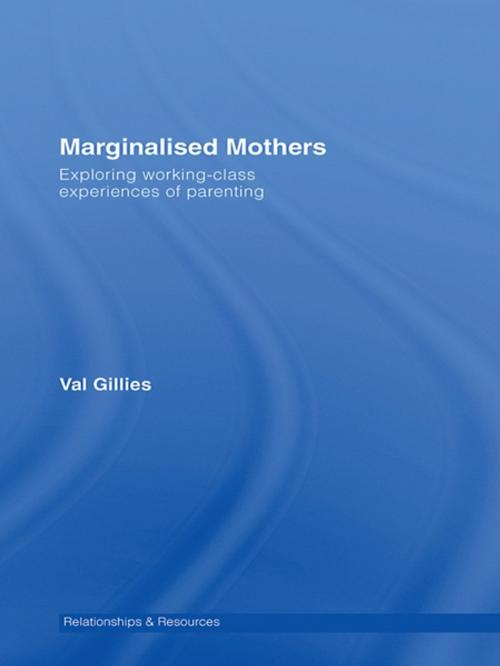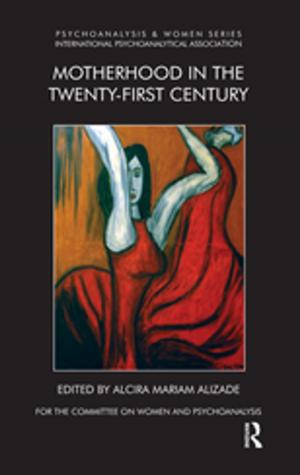Marginalised Mothers
Exploring Working Class Experiences of Parenting
Nonfiction, Social & Cultural Studies, Political Science, Government, Social Policy, Social Science, Sociology| Author: | Val Gillies | ISBN: | 9781134223893 |
| Publisher: | Taylor and Francis | Publication: | December 5, 2006 |
| Imprint: | Routledge | Language: | English |
| Author: | Val Gillies |
| ISBN: | 9781134223893 |
| Publisher: | Taylor and Francis |
| Publication: | December 5, 2006 |
| Imprint: | Routledge |
| Language: | English |
Successive moral panics have cast poor or socially excluded mothers - associated with social problems as diverse as crime, underachievement, unemployment and mental illness - as bad mothers. Their mothering practices are held up as the antithesis of good parenting and are associated with poor outcomes for children.
Marginalised Mothers provides a detailed and much-needed insight into the lived experience of mothers who are frequently the focus of public concern and intervention, yet all too often have their voices and experiences overlooked. The book explores how they make sense of their lives with their children and families, position themselves within a context of inequality and vulnerability, and resist, subvert and survive material and social marginalisation.
This controversial text uses qualitative data from a selection of working class mothers to highlight the opportunities and choices they face and to expose the middle class assumptions that ground much contemporary family policy. It will be of interest to students and researchers in sociology, social work and social policy, as well as social workers and policymakers.
Successive moral panics have cast poor or socially excluded mothers - associated with social problems as diverse as crime, underachievement, unemployment and mental illness - as bad mothers. Their mothering practices are held up as the antithesis of good parenting and are associated with poor outcomes for children.
Marginalised Mothers provides a detailed and much-needed insight into the lived experience of mothers who are frequently the focus of public concern and intervention, yet all too often have their voices and experiences overlooked. The book explores how they make sense of their lives with their children and families, position themselves within a context of inequality and vulnerability, and resist, subvert and survive material and social marginalisation.
This controversial text uses qualitative data from a selection of working class mothers to highlight the opportunities and choices they face and to expose the middle class assumptions that ground much contemporary family policy. It will be of interest to students and researchers in sociology, social work and social policy, as well as social workers and policymakers.















